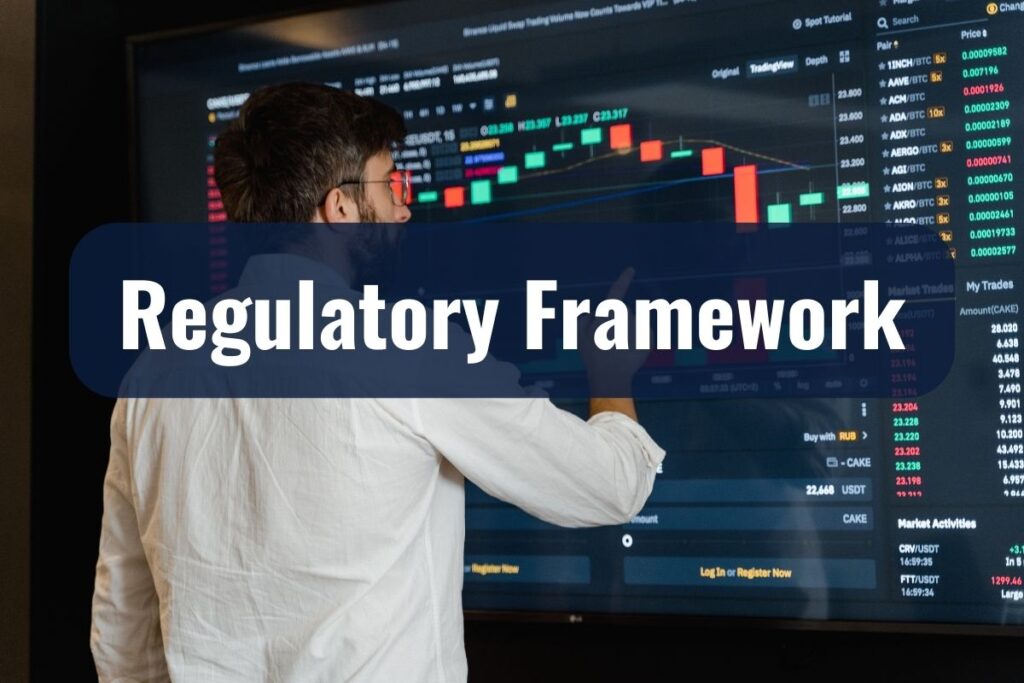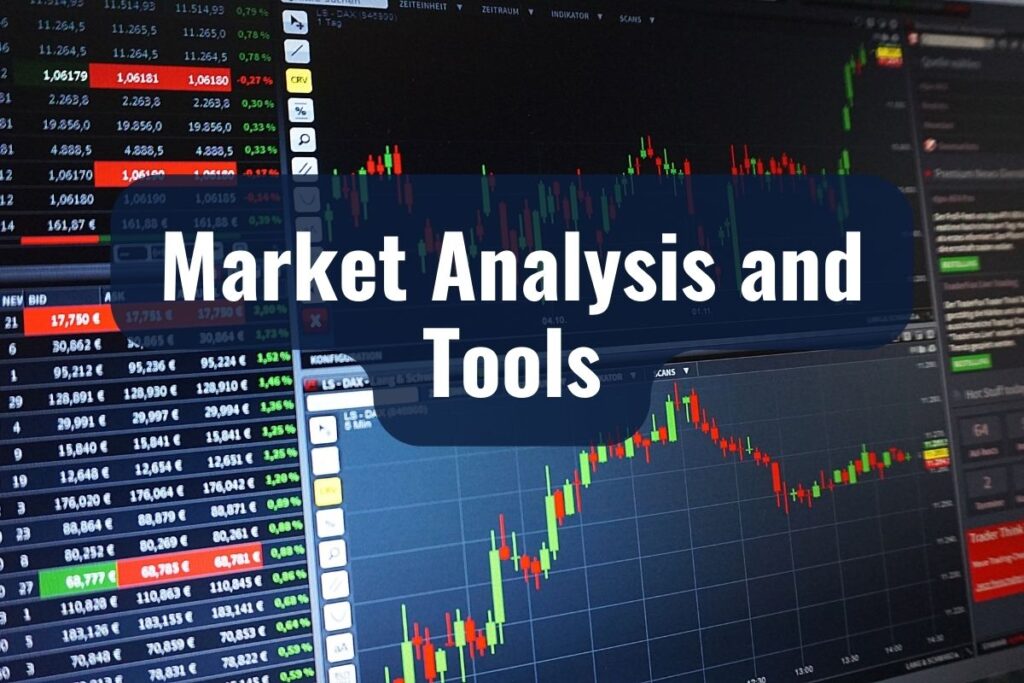Germany stands as a pivotal financial hub in Europe. The country’s financial market, marked by stability and strong regulatory frameworks, attracts a diverse array of global investors and financial professionals.
For those residing outside Germany, particularly non-German speakers, the allure of participating in this dynamic market is often accompanied by the challenge of navigating a system primarily operated in German. This article aims to demystify the complexities of trading in Germany, offering valuable insights and guidance in English.
KEY TAKEAWAYS
- Germany’s financial market offers a dynamic and stable environment for foreign investors.
- Key exchanges and indices provide diverse investment opportunities.
- Strict regulations under BaFin ensure market integrity and investor protection.
- Selecting the right broker and platform is crucial for effective trading in Germany.
- Diverse sectors and strategies cater to different investor profiles.
- Understanding tax implications and double taxation agreements is essential.
- Effective market analysis combines technical and fundamental approaches.
- Overcoming language barriers and cultural nuances is key to success.
- Accessing professional advice and support services enhances trading efficiency.
Understanding the German Stock Market
Key Stock Exchanges in Germany
Germany’s financial landscape is anchored by several stock exchanges, with the Frankfurt Stock Exchange (Frankfurter Wertpapierbörse) being the most prominent. Known for its significant trading volume and global influence, the Frankfurt Stock Exchange is home to a multitude of German and international companies. It’s a primary venue for equity, bond, and other securities trading, making it an indispensable component of the global financial system.
Major Indices
| Index | Description | Companies Included |
| DAX | Comprises the 40 largest and most liquid German companies listed on the Frankfurt Stock Exchange. | Top 40 German Companies |
| MDAX | Focuses on mid-cap companies, representing the next 60 largest companies after the DAX. | Mid-Cap German Companies |
| TecDAX | Includes 30 major technology companies, excluding those already in the DAX. | Top 30 Tech Companies |
The performance of the German stock market is often reflected in its major indices, such as the DAX, MDAX, and TecDAX. The DAX (Deutscher Aktienindex) is particularly noteworthy, comprising 40 of the largest and most liquid German companies listed on the Frankfurt Stock Exchange. Tracking the performance of these indices provides investors with crucial insights into the health and trends of Germany’s economy.
Market Capitalization and Types of Stocks Available
Germany’s stock market is characterized by a diverse range of companies, spanning from well-established conglomerates to emerging tech startups. The market capitalization of listed companies varies significantly, offering opportunities for different investment strategies, whether focusing on large-cap, mid-cap, or small-cap stocks. Moreover, the German market provides access to various types of stocks, including blue-chip stocks, growth stocks, and value stocks, each catering to different investor profiles and risk appetites.
Regulatory Framework

Regulatory Bodies Overseeing German Trading
The German financial market operates under a strict and well-organized regulatory framework, essential for maintaining its integrity and investor confidence. At the forefront of this framework is the Bundesanstalt für Finanzdienstleistungsaufsicht (BaFin), the Federal Financial Supervisory Authority. BaFin is tasked with supervising banks, financial services institutions, insurance firms, and securities trading. Its primary role is to ensure the stability and transparency of the German financial system, making it a key regulatory body for anyone involved in trading within Germany.
Key Regulations and Compliance Requirements for Trading
Germany’s regulatory environment is known for its rigor, designed to align with both national and European Union financial directives. Key regulations that govern trading activities include the German Securities Trading Act (Wertpapierhandelsgesetz) and the MiFID II (Markets in Financial Instruments Directive), an EU legislation that sets standards for investment services across the European Economic Area.
These regulations cover aspects such as market transparency, investor protection, and reporting requirements. Compliance with these regulations is mandatory, and understanding them is crucial for foreign traders to ensure smooth and lawful trading operations in Germany.
Impact of EU Regulations on German Trading Practices
The influence of the European Union on Germany’s trading regulations cannot be understated. EU directives and regulations, such as the European Market Infrastructure Regulation (EMIR) and the General Data Protection Regulation (GDPR), significantly shape the trading landscape in Germany. These regulations aim to create a more integrated financial market within Europe, enhancing efficiency and investor protection.
For foreign investors, particularly those from non-EU countries, grasping the impact of these EU regulations is vital for effective trading in Germany, as it dictates the broader legal context in which they must operate.
Trading Accounts and Platforms
Opening a Trading Account in Germany as a Foreigner
For foreigners looking to trade in the German market, the first step is to open a trading account. This process involves choosing a broker that operates in Germany and meets the specific needs of international clients. Many German brokers offer services in English, easing the language barrier for non-German speakers. When selecting a broker, it’s crucial to consider factors like trading fees, platform usability, customer service, and the range of available financial instruments.
Comparison of Popular Trading Platforms and Brokers in Germany
The German market offers a variety of trading platforms and brokers, each with its own set of features and advantages. Major international brokers often have a presence in Germany, providing platforms with comprehensive tools and global market access. Additionally, local German brokers offer platforms tailored to the specifics of the German market, which can be beneficial for those focusing on local stocks and securities.
It’s important for investors to compare these options, considering aspects like trading interface, mobile app availability, research tools, and the level of customer support.
Necessary Documentation and Verification Process
Opening a trading account in Germany requires going through a verification process, which aligns with global standards for financial transactions. This typically includes providing identification documents, proof of residence, and sometimes proof of income or financial experience. The Know Your Customer (KYC) and Anti-Money Laundering (AML) regulations mandate this process.
The documentation requirements may vary depending on the broker, but they generally include:
- A passport or ID card
- A recent utility bill or bank statement for address verification
- Additional documents for more comprehensive accounts or services.
Investment Strategies and Opportunities

Overview of Investment Strategies in the German Market
Investing in the German stock market offers a range of strategies suited to different investor profiles and objectives. These strategies can broadly be categorized into long-term investing, short-term trading, and day trading. Long-term investors often focus on stable, blue-chip companies or diversified funds, seeking growth over years.
Short-term traders, on the other hand, might capitalize on market trends and fluctuations, often holding positions for weeks or months. Day traders engage in a more dynamic approach, buying and selling securities within the same trading day, requiring a deep understanding of market movements and a high tolerance for risk.
Sector Analysis: Key Areas of Growth and Stability
The German market is characterized by a diverse industrial base, offering various sectors for investment. Traditionally strong sectors include automotive, engineering, and manufacturing, which continue to be pillars of the German economy. However, emerging sectors such as renewable energy, technology, and biotech are increasingly gaining prominence, offering new growth opportunities.
Investors should conduct thorough sector analysis to understand the risks and potential of different industries, considering factors like market trends, governmental policies, and global economic conditions.
Emerging Opportunities: Niche Markets and Innovations
Apart from established sectors, the German market also presents opportunities in niche areas and innovative fields. These include green energy technologies, digital transformation in traditional industries, and emerging startups in fintech and medtech. These areas often carry higher risk but can offer substantial rewards for well-informed investors. Staying abreast of market news, technological advancements, and policy changes can help investors identify and capitalize on these emerging opportunities.
Tax Considerations
Tax Implications for Foreign Investors in Germany
Understanding the tax implications of trading in Germany is a critical aspect for foreign investors. Germany has a structured tax system for investment income, which includes dividends, interest, and capital gains. Foreign investors are subject to capital gains tax on their investment profits. The current flat rate for capital gains tax in Germany is typically around 25%, plus the solidarity surcharge and church tax if applicable. It’s important for investors to familiarize themselves with these tax obligations to manage their investments effectively and legally.
Double Taxation Agreements and Relief Options
Germany has double taxation agreements (DTAs) with many countries, which are designed to prevent the same income from being taxed twice. These agreements can significantly affect how foreign investors are taxed on their German investment income. Depending on the investor’s country of residence and the specific terms of the DTA, they may be eligible for tax relief or exemptions. Understanding these agreements is crucial for foreign investors to ensure tax efficiency and compliance with both German and home country tax regulations.
Reporting Requirements for Profits and Dividends
Foreign investors are required to report and pay taxes on their investment profits and dividends from German sources. The process typically involves filing an annual tax return in Germany. Many brokers offer tax reporting services and can withhold the appropriate taxes automatically, simplifying the process for the investor. However, it’s advisable for investors to consult with a tax professional, especially if their investment activities are complex or if they have tax obligations in multiple countries.
Market Analysis and Tools

Tools for Market Analysis: Technical and Fundamental Approaches
Effective market analysis is crucial for successful trading in the German market. Investors typically rely on two primary approaches: technical analysis and fundamental analysis.
Technical analysis involves studying historical price patterns and market trends to forecast future movements. It often includes the use of charts, indicators, and statistical models.
Fundamental analysis, on the other hand, focuses on evaluating a company’s intrinsic value based on financial and economic factors, including earnings, market share, and overall economic conditions. Utilizing a combination of these approaches can provide a more holistic view of investment opportunities and risks.
Resources for Staying Updated with Market Trends
Staying informed about market trends and news is essential for timely and effective investment decisions. This involves regularly monitoring financial news, market reports, and economic indicators. Investors can access a variety of resources, such as financial news websites, market analysis platforms, and professional financial journals.
Additionally, many brokers offer their clients research tools and market insights, which can be particularly helpful for foreign investors navigating the German market. Keeping abreast of global economic events is also important, as they can have a significant impact on the German market.
Importance of Economic Indicators in German Market Analysis
Economic indicators play a critical role in market analysis, as they provide insights into the health and direction of the economy. Key indicators relevant to the German market include GDP growth rates, unemployment rates, manufacturing data, and consumer confidence indices.
Monitoring these indicators can help investors understand broader economic trends and make more informed investment decisions. Additionally, considering Germany’s significant role in the European Union, investors should also pay attention to EU-wide economic indicators and policy decisions.
Challenges and Tips for Foreign Traders
Language Barriers and Solutions
One of the foremost challenges for foreign traders in the German market is the language barrier. While many financial services and trading platforms offer English-language options, key documents, and regulatory information are often primarily in German. To navigate this, foreign traders should seek out brokers and financial services that provide comprehensive support in English.
Additionally, using translation tools and services, or even learning basic financial German, can be immensely helpful in understanding complex documents and regulatory requirements.
Cultural Nuances in German Business and Trading
Cultural nuances also play a significant role in the German business and trading environment. Germany is known for its emphasis on punctuality, precision, and formality, especially in business contexts. Understanding and respecting these cultural aspects can facilitate smoother interactions with local businesses, regulators, and service providers.
For traders, this might mean adhering strictly to deadlines, being meticulous in documentation, and maintaining a formal tone in communications.
Tips for Effective Trading in Germany
- Research Thoroughly: Before entering the German market, conduct extensive research on the market dynamics, regulations, and cultural practices. This groundwork is essential for informed decision-making and effective trading.
- Stay Informed: Keep abreast of the latest market news, economic trends, and regulatory changes. This continuous learning process is crucial in a dynamic market like Germany.
- Use Technology Wisely: Leverage financial tools and platforms that offer real-time data, analytical tools, and market insights. Many modern trading platforms provide features specifically designed to assist foreign traders.
- Network and Collaborate: Engaging with local investors, joining trading forums, and participating in financial seminars can provide valuable insights and aid in understanding the market’s nuances.
- Consult Professionals: When in doubt, seek advice from financial advisors, tax professionals, or legal experts who are familiar with the German market. This expert guidance can be particularly beneficial in complex situations or for large-scale investments.
Financial Services and Support

Financial Advising Services Available for Foreigners
For foreigners trading in the German market, accessing reliable financial advising services is crucial for informed decision-making. Many financial institutions and independent advisory firms in Germany offer services tailored to the needs of international clients. These services range from investment advice and portfolio management to tax planning and compliance support.
Foreign investors should seek advisors who are well-versed in both German and international financial regulations, as well as those who can communicate effectively in English or their preferred language.
Role of Legal and Financial Advisors in Trading
Engaging with legal and financial advisors plays a pivotal role in navigating the complexities of the German financial market.
Legal advisors can provide critical guidance on compliance with German and EU financial regulations, helping to avoid legal pitfalls.
Financial advisors, on the other hand, can assist in formulating investment strategies, managing risks, and optimizing portfolio performance.
For foreign traders, having advisors who understand their unique challenges and objectives can be a significant advantage.
Support Services and Forums for Foreign Traders in Germany
Apart from professional advisory services, there are numerous support services and forums available for foreign traders in Germany. Online platforms and trading communities offer spaces to discuss market trends, share insights, and seek advice from fellow traders.
Additionally, many industry associations and chambers of commerce provide resources and networking opportunities specific to foreign investors in Germany. Engaging with these communities can offer valuable support, insights, and connections that enhance the trading experience.


